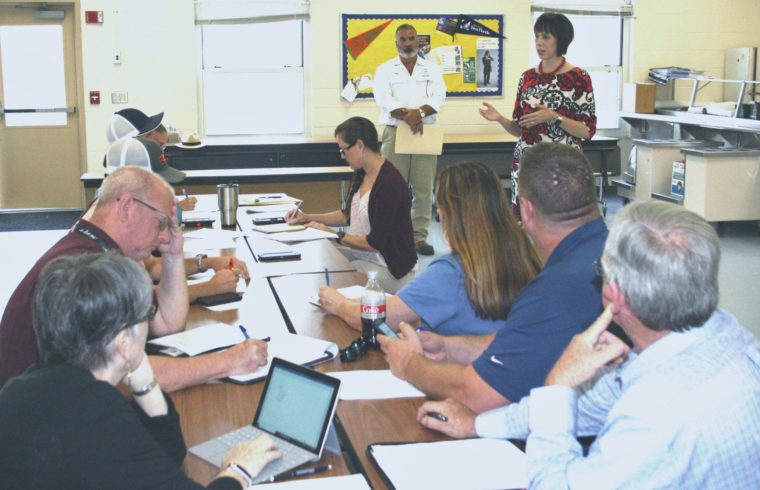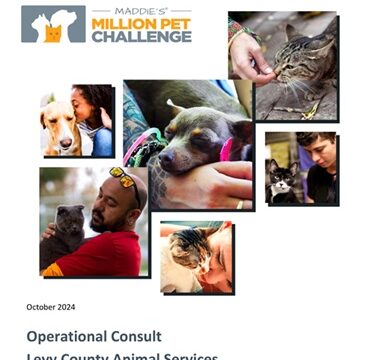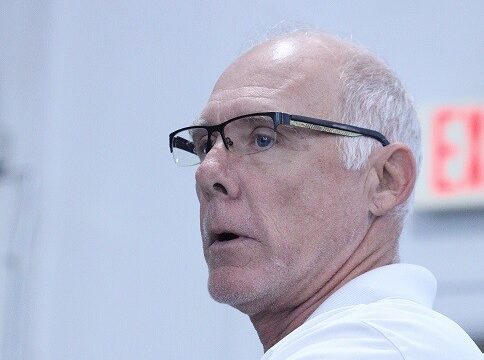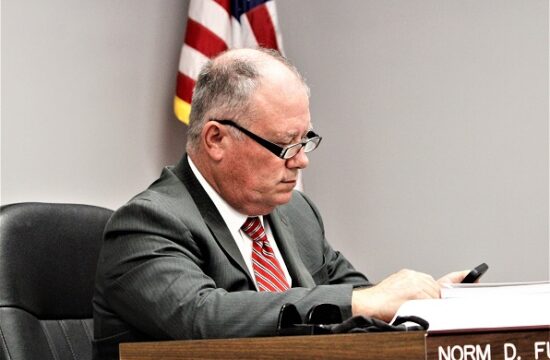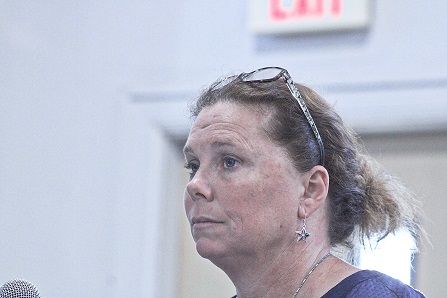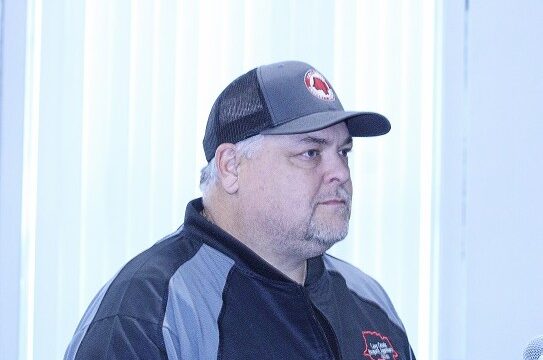By Terry Witt – Spotlight Senior Reporter
A draft county licensing ordinance aimed at regulating private garbage haulers was unveiled for the first time Thursday and was criticized by one firm as a way to drive small companies out of business.
County Attorney Anne Bast Brown denied the ordinance was created for that purpose.
Municipal administrators and representatives of large and small waste management companies met with county officials in Bronson to learn about the licensing ordinance and how it might affect them.
The licensing ordinance is aimed at regulating haulers and how they do business in the county and to gain control of the waste stream flowing into the Levy County Landfill.
While the ordinance is not directly related to the county’s adoption earlier of a $116 residential landfill assessment, county officials say the assessment and licensing ordinance are part of the ongoing effort to better manage garbage collection services and fund Levy County Landfill operations.
The timetable for adopting the licensing ordinance is sometime between Dec. 18 and the first of January. County officials gave a brief summary of the ordinance to haulers and then asked for comments in Thursday’s meeting.
There were few haulers in attendance. Many cities, including Chiefland, were not represented at the meeting.
A representative of Sanford and Son, Inc. asked if the purpose of the ordinance was to drive small companies out of business.
“Is your purpose to eliminate the smaller people,” said William Hamby of Sanford and Son, Inc., a waste management company doing business between Williston and Bronson.
“That’s not the purpose at all,” responded Brown.
Hamby cited the licensing ordinance’s insurance requirements, which he said amounted to millions of dollars in coverages. He said it’s more than small companies can afford.
“If I was one of these guys running around in my neighborhood with a pickup truck and a trailer, you just eliminated him,” Hamby said.
“The ultimate purpose was for flow control,” Brown responded. “In order to get there the license piece was required.”
Hamby wondered if there was any way to adjust the insurance requirements into tiers to reflect a company’s size.
Brown said the licensing ordinance had been presented to the county commission several times before and was never passed. In her conversations with the county’s insurance carrier, she said the coverages Hamby saw in the ordinance were requested by the county’s insurer.
“These are the coverages and the types you need,” she said.
The licensing ordinance also calls for haulers to pay a licensing fee equal to one-half a percent of the gross revenues from the collection of solid waste.
Heather Encinosa, an attorney with Nabors Giblin and Nickerson, a county consultant, said the county is also planning to adopt a resolution advising haulers that franchising of garbage contracts could occur in three years. The franchising resolution and the licensing ordinance will come before the county commission at the same meeting for approval.
Encinosa said franchising is not a certainty, but state law requires the county to adopt a resolution warning haulers that franchising is a possibility in three years. The warning gives haulers time to make adjustments to their contracts. Cities won’t be impacted by franchising in the incorporated areas. Cities can do their own franchising with garbage companies.
Existing municipal garbage collection contracts won’t fall under the requirements of the new licensing ordinance, either, but when the municipal contracts expire, city haulers will be required to meet the requirements of the licensing ordinance.
Franchising could also drive smaller haulers out of business. Franchising would involve bidding out garbage collection contracts. There could be multiple garbage collection zones in the unincorporated areas, or the entire unincorporated area could be in one zone served by one hauler.
Encinosa said the successful bidder or bidders for franchising contracts would not have to buy out businesses that no longer could operate in the areas they once served unless the county chose to move forward with franchising before the three years period was up.
Encinosa said the county must wait one year before it begins preparing for franchising. After a year, the county has the right to begin seeking bids for franchising areas. But even if the bids are sought, she said the county commission still has the option of not going forward with franchising.
The county commission is moving forward with developing remote locations known as satellite garbage collection sites. County Commissioner Matt Brooks said an optimistic assessment of the timetable for the satellite locations would be six months to have the sites chosen, the budget numbers calculated, the hours of operation figured out, and whether the sites would be manned or unmanned. It might take up to a year to establish the sites and begin operating them. Brooks is the commissioner who oversees the landfill. He has no direct authority over landfill operations but stays in touch with landfill officials and communicates what he learns to the board.
Satellite sites are aimed at reducing the drive time to the landfill. Under the county’s new solid waste program, the dumping of residential waste at the landfill is free. But the county realizes that free dumping might not be cost-effective for people who would have to drive 45 miles with a bag of garbage. The idea of using satellite sites would serve people living the farthest away from the landfill.
————————————————————————-
BELOW ARE THE INSURANCE REQUIREMENTS:
The applicant shall maintain in full force and effect insurance as follows:
A. Comprehensive general liability policy and a policy for solid waste general liability. Coverage under each policy must be afforded under a per occurrence form policy for limits not less than $1,000,000 general aggregate, $1,000,000 products/completed operations aggregate, $1,000,000 personal and advertising injury liability, $1,000,000 each occurrence, $50,000 fire damage liability and $5,000 medical expense.
B. Automobile liability and coverage must be afforded including coverage for all owned vehicles, hired and non-owned vehicles for bodily injury and property damage of not less than $1,000,000 combined single limit each accident.
C. Workers compensation insurance as required by State of Florida.
D. Pollution and automobile pollution coverage is not less than $1,000,000 limit.
Photo by Terry Witt: Attorney Heather Encinosa discusses the licensing ordinance and franchising as commercial waste haulers and municipal officials listen. In back is Levy County Landfill Administrative Director Rod Hastings.
Board of County Commission October 25, 2018
Posted October 25, 2018


